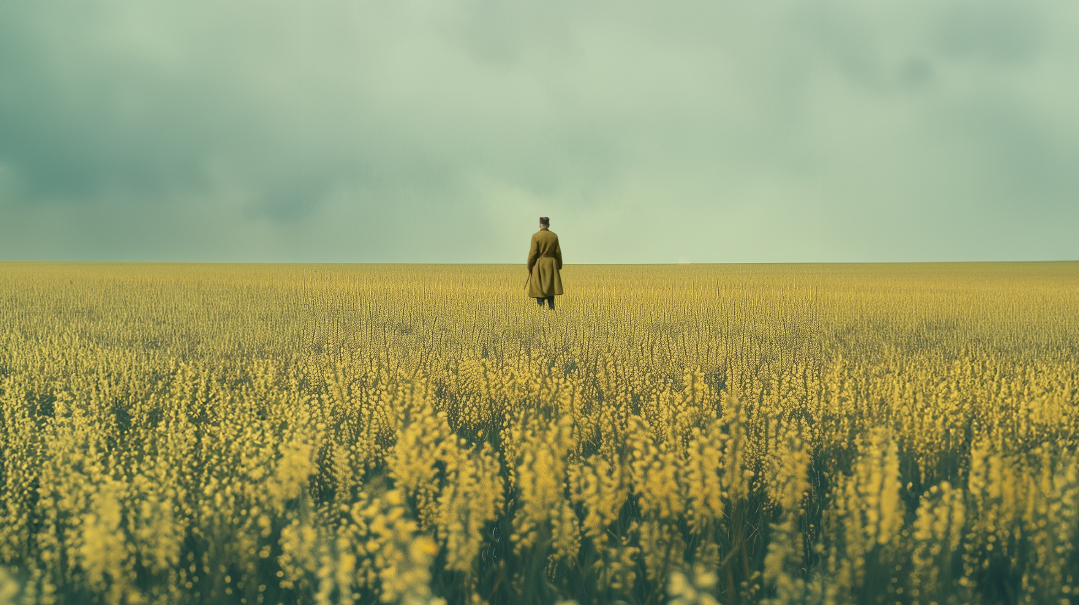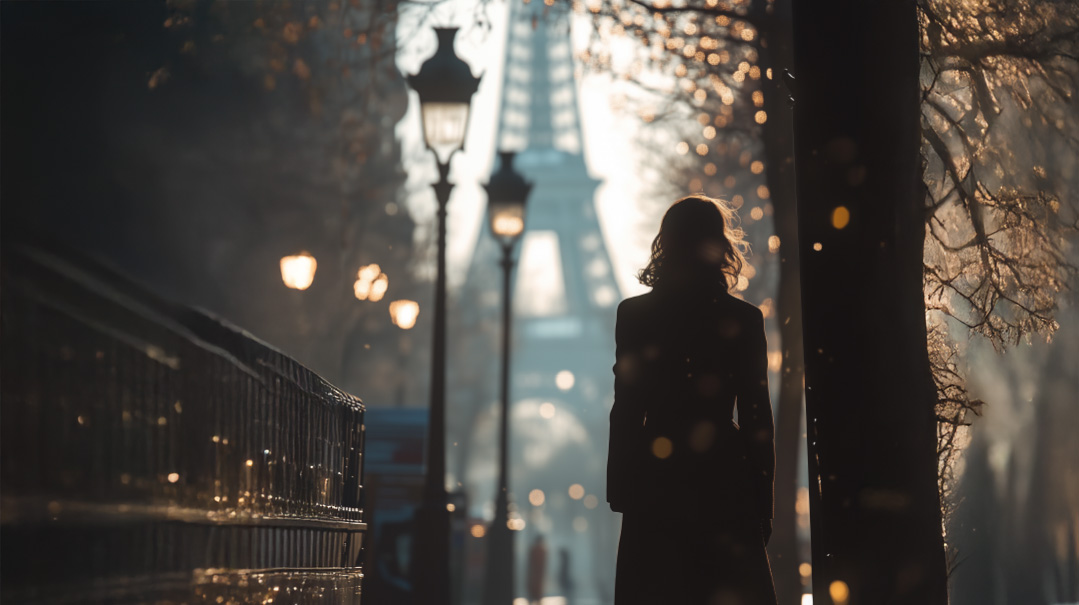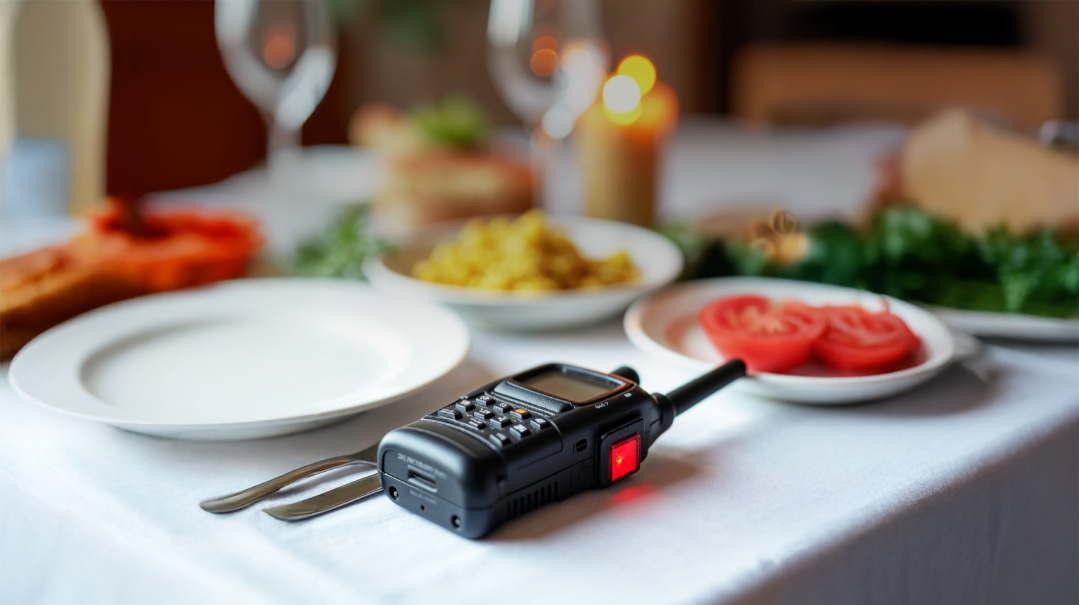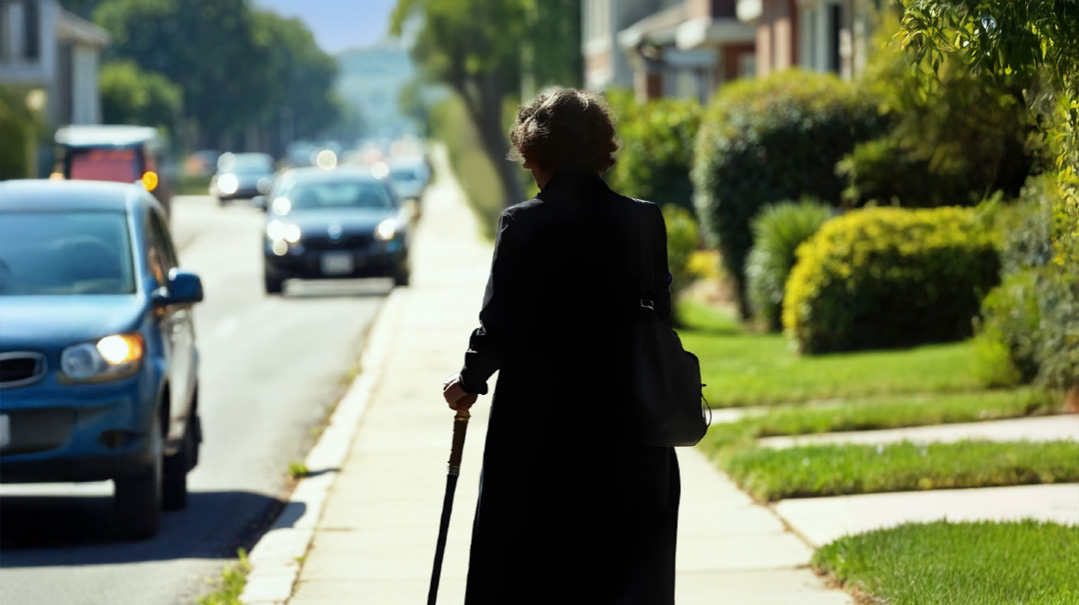Till It’s Over
| October 13, 2024“They broke me,” Gavriil said, staring sightless at his memories. “Go on home, Yefim. I stay here”

Gavriil said we should wear the dress uniforms.
I said maybe we should wear the regular ones instead — come humble. But he said it’s not a time for being humble, it’s an occasion, and occasions must be honored. It’s only right, he said, after all the years they waited, to show that we’ve been waiting, too.
Corporal Turgenev, he solved it for us in the end. When he called us for discharge, he got his smile on. A chillingly beautiful smile: chalk-white teeth, oiled mustache. I felt cold to my bones, and I feared straight away there was a problem with our papers, or they’d found out my real age — I’m confused what it is myself, but it’s younger than it’s supposed to be — and they wouldn’t let us go.
But this time I was wrong. “You’ve served your duties to the Czar,” Turgenev said, “but no more than that. So you can go now — but no more than that either. Your uniforms and weapons stay here.”
Discharged soldiers always keep their uniforms and we had no other clothes, but Turgenev, he would only be smugger if we begged. So we signed the discharge papers, and in the pile with all my army documents I caught a glimpse of the old yellowish one with my little-boy thumbprint from when I was conscripted. Something crinkled inside my throat and I had a strange thought: So what else is different between Yankush and Yefim, besides Yefim knowing how to write Russian?
Somehow, Gavriil scrounged us some old kosovorotkas, though the sleeves on mine barely passed my elbows, and that was that. Dress uniforms, regular — the greatcoat always ended above my knees anyway, and the seams nearly burst if I tried buttoning it, so maybe it’s for the best I’ll meet Papa and Mama this way.
The only thing is we couldn’t find caps any way we tried. Between when I was Yankush and now, there have been lots of things I thought I could never do. Each time, I turned out to be wrong. But to come before Papa bareheaded — this, I can’t.
We arrived in Vitebsk to late winter weather. I’d pictured discharge drenched in sun but of course it wasn’t like that. Even the clouds were no lighter than usual for the time of year.
It was cold and we found a tavern with a room to spare, but after a while in the smoke we found ourselves again at the door, leaning against it and looking out, like we had to prove to ourselves that we could walk off whenever we wished.
It was there, on the doorstep, that Gavriil said goodbye to me. It is hard to explain what it was like, except maybe losing a brother. “Come with me,” I said. “Come to Peruzhin. Do you have anywhere else to go? No, you don’t.”
Gavriil, he put his hand over his eyes, like he was saying Shema, the one thing we both still knew how to do. “No, I don’t,” he said. “My parents are long gone. There is nothing to return to.”
But still he wouldn’t come to Peruzhin with me. Maybe here, he said, in the big city, there would be some opportunities for him.
The loneliness. That is all I heard when he carried on about his opportunities. “What kind of opportunities can you have, Gavriil?” I asked him. “Maybe a little business, maybe a small room to live in. But nothing of what we’ve waited for, sung of, dreamed about all this time. No family. No Yiddishkeit, even now. Will you let his Excellency the Czar take that away from you even now he’s grudged it back?”
“They broke me,” Gavriil said, staring sightless at his memories. “Go on home, Yefim. I stay here.”
“You never broke, my brother!” I said. “They bludgeoned you senseless, you refused baptism. They smeared lard on your lips, you rubbed them raw to get it off. They drew crosses on your clothes, you ripped great gaping holes in them. You, broken?!”
“What do you fear?” he asked, looking up suddenly to inspect me. “You travel home now, to the Papa and Mama you ached for all these years. Why do you hesitate?”
I dropped down beside him. “It is not Mama and Papa,” I affirmed, gazing at the memories alongside him. “It is Avreimel.”
*
Gavriil gave me a cap for a parting gift. Where he found it in the end I have no idea, but he always remembered the important things. His heart never forgot home, even after the details had become hazy for both of us. In fact, it was he who reminded me about the kasha back on that Pesach.
Oh, how my stomach ached that week! I felt nauseous with hunger. The officers didn’t know it was Pesach — most of the boys themselves forgot — but for some reason, that week they switched most of the potato meals to kasha. I never before, nor ever since, saw so much kasha in one week.
We were on field training that week and it was brutal. The small portions of kasha barely nibbled the edge off that kind of hunger, and all around, the only thing the boys spoke about was how to chew it. How to get the most out of every bite, how to find and crush every kernel between your teeth so that nothing slipped down your throat whole, undigested. Small nibbles at a time so you knew nothing went to waste? Or mouthfuls, with the risk of missing something, but it made you feel you were actually eating. And maybe, after all, mouthfuls were better? The kasha ground down more efficiently when there was enough of it to catch between your teeth. But then again….
The first night, I held my bowl out for a ladleful and turned quickly to find a quiet spot, somewhere where Kirill and his gang wouldn’t find me if they decided to go for seconds after their own portions were finished. That was when I noticed Gavriil, on the side, slumped. Not chewing mouthfuls, not chewing kernels.
“Gavriil,” I said, “what happened? Was it Kirill?”
“No,” he said, and his voice sounded wet. “Pesach, Yankush,” he whispered. He had not used my real name for more than a year, but now he did. “Pesach. Yankush!”
“Pesach?” I asked, confused. “Pesach, tonight?”
“Tonight,” he nodded. “And you are eating kasha!”
It took me a moment to put the two parts of his sentence together because at first I thought Pesach was the holiday with the huts. Heaven forgive me. It had been so long already since I had left home, and I had been so young.
But I understood after a moment. “Kasha is chometz?” I whispered. Matzah, and Papa dressed in white. Those were the hazy memories that came up at last, along with the word chometz — a word that I remembered almost as a rebuke, and I knew it must be avoided, though I hadn’t a real idea what it was. But I didn’t want the kasha to be chometz. My fingers shook, I was so hungry.
“Kasha is chometz, avadeh,” Gavriil said. He said it as though I had disappointed him. “Yankush! Throw it away!”
“I will sell it to Kostya,” I pleaded. “He has some beets. I will exchange it. Beets are not chometz, right?”
“Yefim, you can’t sell chometz on Pesach,” Gavriil said, now his voice like Corporal Kuletsky counting push-ups. No excuses, no weaknesses. “If you find chometz on Pesach, you have to throw it away.”
And because it was Gavriil, I did. I found a corner by the latrines and emptied the steaming mess and then I walked away quickly, because I was so hungry I might still have eaten it, straight from the ground.
There were many times during my service of His Excellency the Czar, during my service of the Eibeshter, that I went hungry. That I sacrificed and pushed myself, hard. But this was the moment that I believe I earned my epaulets up in himmel. I cannot say, even now, that I am glad it happened. It was too dark and fearsome, too painful, to ever say that. But I will say that I warmed myself by the glow of this memory for all the rest of my service. My medal-earning act of bravery on the battlefield.
When I sat beside Gavriil years later, in Vitebsk, and spoke about Avreimel, I was thinking about the kasha. Avreimel’s father was a grain merchant, and their home overflowed with kasha. Sacks of little kernels in the loghouse storeroom, barrels of flour and grits in the corner of the kitchen. Avreimel’s father — I have not a true memory of him but more the idea of him looming over us, and I was always a little scared of him because he spoke like he was in charge, always, even when the rav was there or older people.
Avreimel used to bring buckwheat pancakes to cheder. And because his father was the only grain merchant in Peruzhin, they could afford apples, and sometimes white rolls with butter. But Rebbe Eizik loved Avreimel even without the food his father sent for Rebbe Eizik’s family. Avreimel had a kop, he always remembered what Rebbe Eizik said even months earlier, and he had answers to Rebbe’s questions that made Rebbe clap his hands and almost dance.
I was a bit scared of Avreimel, too, maybe because he also spoke a little like his father. Really, he was allowed to, I suppose, because he was almost second in command to Rebbe Eizik. He decided what we played and who got to be what. When we played chappers one time, he told me to be the boy that gets taken to the Czar’s army. That was the only time I fought with him. “I don’t want to,” I said, but it didn’t come out very loud, so I coughed.
Avreimel looked at me funny. Moishik and Shabsi were arguing over who would be the chapper and who would be the goyishe soldier, so no one else heard when Avreimel said, “But you must be.”
“I’m not going to be,” I said, suddenly very scared. I don’t know why, maybe because he said it like his father, like a command. “Chas v’shalom!”
“You will be,” Avreimel insisted, but now he sounded almost like he felt sorry for me. “My Tatte said he will not let me be taken. He said I will be great one day, and he will make sure they do not take me. And if they need more boys from our village to fill the quota, he has paid Zalmenyu Chapper to take you instead.”
“You’re lying!” I shouted. Maybe I thought it was part of the game. But when Zalmenyu Chapper did take me, Avreimel’s father came to the holding cell where Zalmenyu had brought me and gave him a small bag of red cloth with a drawstring, a fraying drawstring, and said, “That’s the rest of it.” He didn’t look at me, but he gave Zalmenyu another small bag and said, “Give it to the yingel for me, yoh?”
Zalmenyu did try to give it to me, but I could feel it was coins inside, and I pushed it away and said I didn’t want it. Zalmenyu called me a fool and tried to shove it in my pocket, but even much, much later, when I’d been in the army many years and I properly understood how much that money could have helped me, I wasn’t sorry I didn’t take it.
“I am scared to see Avreimel,” I told Gavriil, on the doorstep of that tavern in Vitebsk. “He will be a great person, and I — I will be angry that he is great.”
Gavriil laughed, wistfully, as if he was seeing things far beyond the slushy mud outside the tavern. “You think the Eibeshter is discharging you, Yefim?” he asked. “Sometimes we think our service is done — yes! We have been discharged.”
Then he put his hands on my shoulders and tugged the fabric where, on my uniform, I’d worn my epaulets. “You are still His soldier, Yefim,” he said. “It’s not over till it’s over.”
*
Peruzhin was smaller than I remembered, but really I didn’t remember it so well anyway. I came down the road from the direction of the hills, through the break in the larches where it opens to scruffy grass. It seemed too quiet and I tried to think what could be missing, but I only realized when I passed it: The waterwheel that used to turn a little down from the dam now stood still. It looked like it had been broken a long time already; weeds grew up from the headrace and one of the paddles had cracked down the middle like an old bone. The stream trickled over the slimy dam wall, too slow to have turned the wheel anyway. So. Hard times for the miller, then, whoever it was. I forgot.
The whole time I was in the army, and before that in the canton in Kazan, I dreamed of coming home to Peruzhin. Now I suddenly realized I knew the canton, and the military base at Arkhangelsk — I knew the streets of Kazan, even — better than I knew my home.
When I’d thought about Peruzhin then, I would remember running through a packed-earth square with friends — I couldn’t remember their faces, but we were laughing and pushing each other on toward the far side — was it the river? Or a cluster of people all coming together, heading in the same direction, murmurs and smiles. The clink of Papa selecting nails, thunking them into shoe soles. There wasn’t a picture that went with that memory, just the smell of canvas and glue, and Papa humming scratchily.
But when I entered Peruzhin again, someone muttered and spat on the floor as I passed, sticky mud squelched round my boots, and a shutter clapped against a wall. If not for the size difference, it could have been just a neighborhood of Kazan. Just like Kazan.
The size difference and — the language, Gottenyu! How hadn’t I realized?! Yiddish. Of course they spoke Yiddish. And I could barely make out a sentence in anything other than Russian anymore.
I thought I would need to ask for directions, and for a moment I worried, because of the language, but a big sheigetz like me showing up in town attracted enough attention that the directions came to me. “Yankush,” I told them, pointing to myself. “Yankush Reb Getzele’s.”
The broad-shouldered lad who’d asked kept looking at me blankly, but the men who’d sent him burst into exclamations like a cluster of stock doves. Still, no one approached me.
“Where… where?” I asked, looking at the men. “Take me.”
They continued their conference until at last one of them said something to me. I didn’t understand it all, but he pointed to two of the other men who had hurried off, and I understood they had gone to tell Papa and Mama, slowly. I nodded. Papa and Mama. That, at least, would not have changed.
Yet it had. When at last they led me between two other houses to the door, I saw just one person standing there, holding himself up with both lintels, tears streaming down his face.
“Yankush,” he whispered, and for a moment the world spun. “Yankush. Baruch… mechayeh hameisim.”
*
Mama, they told me, had been gone for years. Soon after I was taken, in fact, “When Rivka was just a baby.” She couldn’t bear my going, weak heart and—
Rivka?
It took a bit of time until I understood, Russian and Yiddish going back and forth like two halves of a buckle in shaky hands, always just missing. Rivka — my sister. Born just after I was taken. Now, twenty-nine years later, she was Papa’s nachas’l, mother to a horde of fine nieces and nephews for me. Someone had gone to tell her and her husband, they would be here soon.
“This you will like,” Papa said, smiling and wiping his eyes again. His other hand rested on my arm and I hoped he would never move it. “She married well, our Rivka, a fine bochur, an illui. When Rav Kovalski, alav hashalom — her husband is now the rav. Maybe you even remember him, Avreimel? Avreimel Kravits.”
For the second time, the world spun.
Before I could think, long before I could open my mouth, the doorway darkened again and — there was Avreimel’s father, like an engraving from a nightmare, give it to the yingel for me, yoh? and now here he was.
Except this must be Avreimel himself. I managed to breathe a moment later. And behind him Mama — only no, not Mama, Rivka, weak heart couldn’t bear it just after you were taken—
I closed my eyes, only for a moment, and when I opened them again Avreimel aimed a smile straight at me. “Baruch mechayeh hameisim!” he boomed, and behind him again, Rivka, smiling and crying and just like Mama does she know no she can’t know.
And Papa, dear Papa, this was his son all the many years I was gone. Even now, Avreimel came over solicitously and put a hand on Papa’s shoulder and whispered to him, Are you all right, Papa, is it too much? And Papa took his hand off my arm to grip Avreimel’s.
Go home to your family, Gavriil had said, to the family you ached for all these years.
Well, I didn’t have to worry, all these years. Avreimel was right here, taking care of them.
*
That night I felt that I was lying down to sleep in a memory, something old that could never be truly retrieved, like an adult trying to pull on a child’s coat. Seeing, smelling, feeling everything brought back more and more memories that I had forgotten I had, and I almost feared to move around lest I break the magic spell that had recreated my childhood.
But by morning I began to discover signs that this was no longer what it had been. Papa, who had been so proud of me as a child — I knew it, somehow, the whole time, and it became part of me and part of my battle without me ever thinking about it — now, he pitied me. There was compassion in his eyes — gentle, sad compassion — when he sat me beside him in shul and pointed out the right place in the siddur, like you’d do for a little cheder yingel. And when I shrugged apologetically — I hadn’t read Lashon Hakodesh writing since I was a little cheder yingel — his heart, I could tell it nearly broke.
I added, then, to the list I had not realized I had been making, of the things Avreimel stole from me. I added — Papa’s pride. I had not lost his love, but I was not his nachas’l anymore. I was now the little boy he had to take care of again, in his old age.
And to spare him that, to spare myself that, I was working on the house that evening when Rivka and Avreimel came by. Some useful things I had learned after all in the army. I was sanding a new slat for the shutter, the smell of sawdust warm and husky in the room, like a spice of peace — I could see it brought a measure of contentment to Papa, and it gave me back a little of my true years, grew me up again in his eyes. Yes, I thought, I do not know how to read alef-beis anymore, but in what truly counts, I have done Papa proud. That Pesach with the kasha, and the hundreds of other tests like it — I did Papa proud. I did the Eibeshter proud.
Rivka set to work straight away cleaning for Pesach, which was in just a short time, and Avreimel sat down with a sefer, but instead of opening it, he said to me, “Yankush, I will teach you alef-beis.” Regally, he said it, like a commander bestowing on a lowly private the privilege of shining his boots.
To sit in front of Papa, next to Avreimel the illui, repeating ah ah ah, bah bah bah? “No,” I said. “Not now. I am busy. I am helping Papa fix the house.”
“Come,” he cajoled, like you do for a little boy. “Give Papa some nachas!”
Nachas, I am sure it would have been for Papa, to see his son awkwardly stumbling over the alef-beis.
I did not wish to fight, certainly not in front of Papa, though words burned in my throat, angry words about rich grain merchants and red cloth bags with frayed drawstrings and sons who become illuyim on other sons’ backs. So I went over to Rivka instead, without replying to her husband, and said, “Here, I will clean these barrels.”
I worked in silence for a while, the water sudsing and sloshing over my hands, the rags rasping on the wood. I began to understand, then, that Avreimel would never let me grow up, because he was afraid. Afraid of what I might say, what I might tell. Papa. Rivka. The town at large. He felt safer shoving me into the mold of a little boy, making me laughable, discredited.
My knuckles bulged as I clenched the rag.
“Rivka, where should I put this chometz?” I asked, just to ask something, say something, that wasn’t soaked in poison.
Rivka gave a startled glance. “That’s kasha?” she said, as if she was asking a question.
“Yes, I know,” I said, and then — I hadn’t planned on telling it. I had always thought it would stay between me and the Eibeshter, the moment I had earned my medal from Him. But the shame of being small before Papa clouded my mind and I said it, I admit, to regain my stature. “I know it is kasha. One year, I was about fourteen, it was all they gave us all Pesach — most of the boys ate it, but Gavriil and I — I almost starved. My fingertips turned black. But I thought of you, Papa, and I wouldn’t eat it, all Pesach.”
Papa’s eyes, I cannot describe them in that moment—
And then Avreimel. He. Laughed? A tiny laugh. Maybe it wasn’t even, maybe I am being unfair. But it sounded like a laugh. To me. And then he said, patiently, sweetly, “Oh, Yankush, kasha is not chometz. You could have eaten it. But you meant well.”
*
I am afraid that Avreimel will be great, I said to Gavriil on the stoop of the tavern in Vitebsk, with people drowning their sorrows at our backs. And I will be angry.
And Gavriil — who never forgot the important things — he laughed then, and he said, “Do you think the Eibeshter is discharging you, Yefim? Sometimes we think we have done our service and now we can rest. Sometimes we think the challenge is over and now we deserve peace. But you are His soldier, Yefim. You never know for which moment you will earn your medals. It’s not over till it’s over.” And then he said it again. “It’s not over till it’s over.”
Words scraped my throat raw, in the small house in Peruzhin. Words that would drain the blood from Avreimel’s smug face.
And who knows for which moment you will earn your medals?
I swallowed the words I would never say, and shrugged at Avreimel. “You are the rav,” I said. Humble, like. “If you say so.”
It’s not over till it’s over.
(Originally featured in Mishpacha, Issue 1033)
Oops! We could not locate your form.







